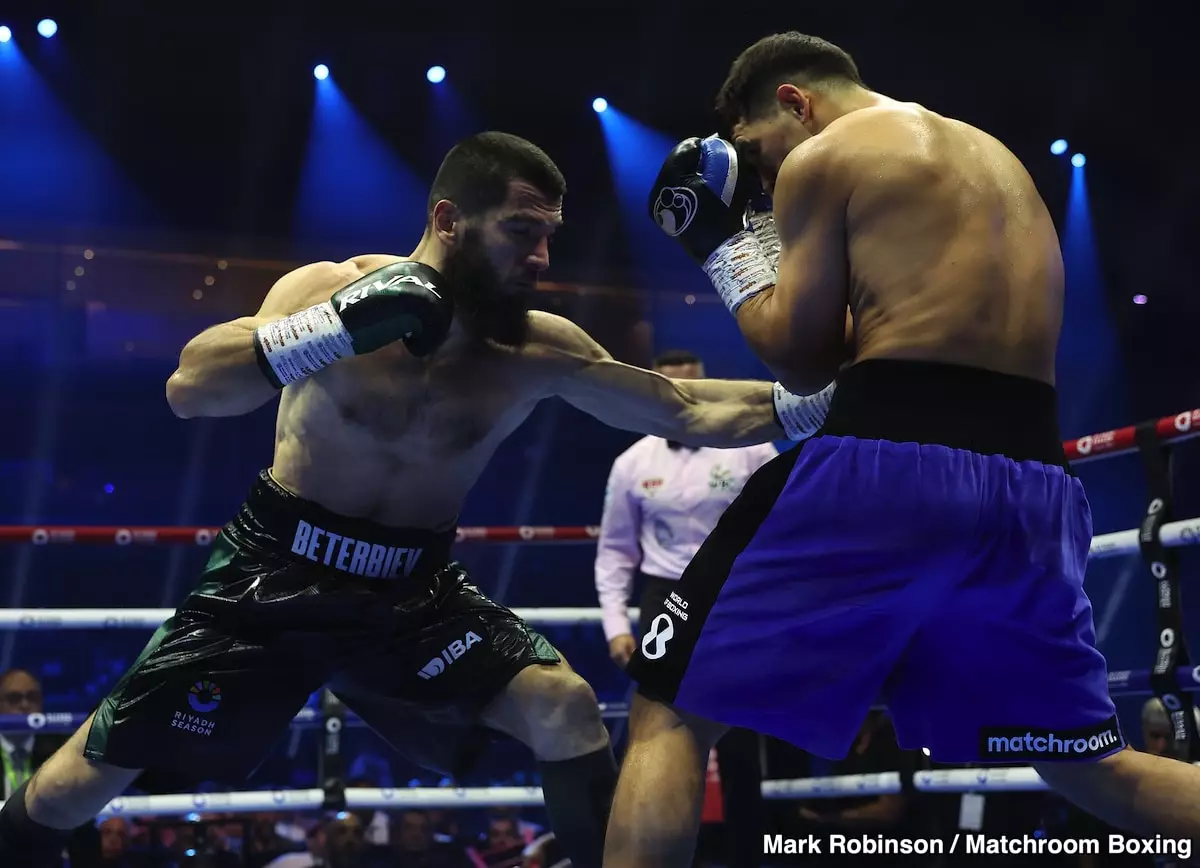In the realm of professional boxing, strategy often dictates the success of a fighter as much as their skills in the ring. Recently, the discussion surrounding the potential showdown between David Benavidez and Artur Beterbiev has raised intriguing questions about timing and age as factors in the sport. With Beterbiev approaching the age of 40, analysts like Sergio Mora suggest a controversial strategy: allowing the champion to “age out” before stepping into the ring with him. This article explores the implications and ethics of such a tactic within the boxing community.
As fighters advance in age, their physical capabilities can inevitably decline, impacting their performance. This is a well-recognized phenomenon in boxing, where younger fighters frequently wait for their older counterparts to diminish before challenging them. Mora’s comments shed light on this long-standing practice, indicating that many champions become significant wins on an undefeated fighter’s resume due to their strategic timing. While Morrell’s statement is pragmatic, it raises ethical questions about the integrity of the sport. Is it fair for a fighter to avoid battling a champion at their peak, opting instead to wait until they are no longer in their prime?
Benavidez’s situation brings these questions to the forefront. With a record of 29-0 and a significant number of knockouts under his belt, he is undoubtedly talented. However, if he were to bide his time for three to four years—waiting for Beterbiev’s skills to diminish—many critics would label such a decision as cowardice rather than a wise strategic move. The commendation one might receive for outsmarting opponents could be overshadowed by doubts regarding one’s bravery as a fighter. Boxing is as much about facing formidable opponents as it is about winning titles.
Mora highlights a pivotal moment for Benavidez: his bout against WBA ‘regular’ champion David Morrell on February 1st. A victory in this match could position him as a strong contender for the undisputed light heavyweight title, but it also puts additional pressure on him. Failure to advance means that he might miss the opportunity to confront Beterbiev altogether, especially if the latter manages to secure another victory against Dmitry Bivol in their impending rematch. The boxing world keenly awaits this matchup, as the result could significantly impact future title fights.
Moving strategically in boxing isn’t unique to Benavidez; it’s a common practice among many fighters. However, there’s a fine line between smart tactics and dodging challenges. The essence of boxing lies in facing the best; therefore, it is vital for up-and-comers to engage with champions rather than avoid them. This philosophy nurtures their development as fighters and retains the sport’s competitive spirit.
Despite his nearing age, Beterbiev’s impressive record of 21-0 with 20 KOs speaks volumes about his power and skill as a competitor. Mora emphasizes that Beterbiev is arguably one of the most dangerous fighters currently active, possessing a style rooted in fierce close-range brawling that puts him at an advantage against many. This is a realization that Benavidez must confront seriously. If Benavidez waits to fight Beterbiev, there is a chance that the champion could be further solidified in his legacy, rendering the fight more daunting even at an older age.
Moreover, Mora speculates whether Benavidez possesses the necessary strength at the light heavyweight class, suggesting that movement up in weight could add an additional layer of complexity to his fight strategy. The potency of Beterbiev’s fighting style cannot be understated, particularly for an opponent still adjusting to the challenges presented by a new weight class.
In summation, the conversation surrounding Benavidez and Beterbiev serves as a critical examination of age, strategy, and the integrity within the boxing community. While leveraging age can be a risky game of chance, delays in facing formidable opponents could tarnish a fighter’s reputation in the long term. As the February bouts draw closer, the boxing world holds its breath, capturing the tension that lies within the sport’s traditions. Ultimately, champions are determined by their willingness to fight the best, reinforcing the idea that waiting may not always yield the desired outcomes in the storied journey of a professional fighter.

